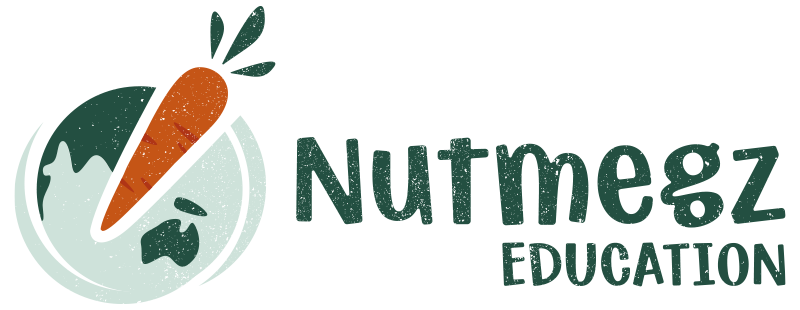The tangible components of sustainability, such as recycling, setting up compost bins and growing veggies, are already readily adopted by many Educators. But how can these sustainable practices be even more deeply and authentically embedded into our learning environments, routines, and programs? And how can we ensure these are not just ‘ticking a box’ but truly adding meaning and value for the children in our care. The answer is through regular and ongoing critical reflection.
Critical reflection can be used to help facilitate transformative change in early learning settings. It guides decision making, raises awareness of outside factors and prejudice, and creates objectives for ongoing development as Educators and as a service.
So where do we start?
Undertaking a “Nutmegz Sustainability Audit” or completing a KWHL Chart can be a fantastic starting point when reflecting on your sustainability practices. You can download our Nutmegz KWKL template for free. From here you can identify your strengths and weaknesses, set goals as a service, and add to your Quality Improvement Plan (QIP).
Where to next?
Not only is it important to reflect on your practice daily, getting together as a team to critically reflect is a valuable opportunity to improve your team’s practice.
The following questions can be used to guide individual or team critical reflections within Quality Area 3:
- How do our current practices fit with our new understanding of sustainability in our curriculum?
- How can we foster each child’s capacity to understand, care for and respect their natural environment?
- How your does our own understanding of environmental responsibility influence our sustainable practice?
- Are the sustainable routines at our service embedded authentically and are they meaningful to the children?
- How can we embed culture and celebrate important cultural days sustainably?
- In what ways do Educators role model caring for the environment for the children?
- How can we access additional information, professional development, and strategies to support children in taking an active role in caring for the environment and contributing to their sustainable future?
- How could we involve families and our local community on our sustainability journey?
As skilled Educators we view children as capable and competent. Therefore, it is so important to document the children’s voice and ideas when it comes to sustainability too. In older age groups this can look like focus questions at mat times, small group forums, collaborative floor books and long-term investigations. With our littlest ones it can be a little more challenging but through careful observations we can take jottings of their curiosities and interests too as we aim to notice the ways they want to be included in the sustainable practices at your centre.
